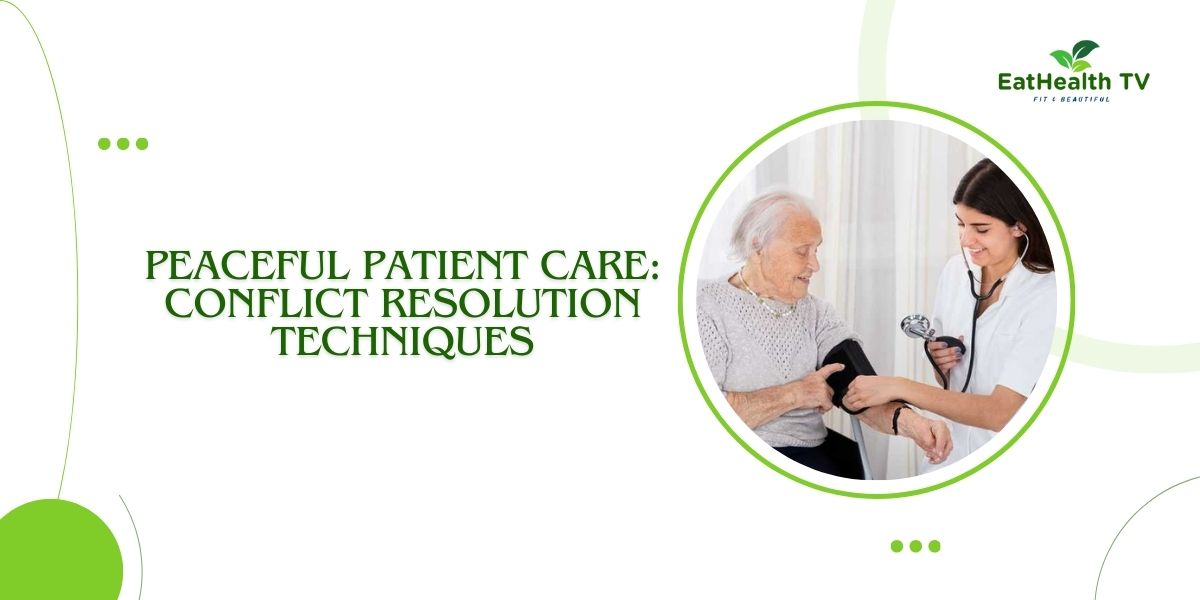Peaceful Patient Care: Conflict Resolution Techniques
Navigating Turbulent Waters: Strategies for Peaceful Patient Care

Peaceful Patient Care: Effective Conflict Resolution Techniques in Healthcare
In the dynamic environment of healthcare, conflicts are inevitable. Whether they arise between patients and healthcare providers, among members of the healthcare team, or within healthcare organizations, conflicts can have a significant impact on patient care and outcomes. However, mastering the art of conflict resolution is essential for promoting a peaceful and productive healthcare environment. In this comprehensive guide, we will explore effective conflict resolution techniques that can be applied in various healthcare settings. From communication strategies to mediation approaches, we will equip healthcare professionals with the tools and skills needed to navigate conflicts with grace and professionalism.
Understanding Conflict in Healthcare
Conflicts in healthcare can stem from a variety of sources, including differences in communication styles, divergent treatment preferences, misunderstandings, and organizational issues. Left unresolved, these conflicts can lead to increased stress, decreased morale, and compromised patient care. Therefore, healthcare professionals must recognize the signs of conflict and intervene promptly to address underlying issues. By understanding the root causes of conflict and implementing proactive strategies, healthcare teams can foster a culture of collaboration, respect, and mutual understanding. Just as we know Harmony in Skincare: Resolving Beauty Conflicts
Effective Conflict Resolution Techniques
- Active Listening: One of the most powerful tools in conflict resolution is active listening. By fully engaging with the other party and demonstrating empathy and understanding, healthcare professionals can create an environment where concerns can be openly shared and addressed.
- Clear Communication: Clear and concise communication is essential for resolving conflicts in healthcare. Healthcare providers should strive to express themselves clearly, listen actively to the perspectives of others, and seek clarification when needed.
- Seeking Common Ground: In many conflicts, there is common ground that can serve as a basis for resolution. Healthcare professionals should identify areas of agreement and build upon them to find mutually acceptable solutions.
- Mediation: In cases where conflicts persist despite efforts to resolve them independently, mediation can be a valuable tool. A neutral third party can facilitate communication and negotiation between parties, helping them reach a mutually satisfactory resolution.
- Conflict Resolution Training: Providing healthcare professionals with training in conflict resolution techniques can equip them with the skills and confidence needed to address conflicts effectively. Training programs may include role-playing exercises, case studies, and communication skills workshops.
Case Studies and Examples
To illustrate the application of conflict resolution techniques in healthcare, let’s explore some real-life case studies:
- Patient-Provider Conflict: A patient expresses dissatisfaction with their treatment plan, feeling that their concerns are not being heard by their healthcare provider. By engaging in active listening, the provider acknowledges the patient’s concerns, clarifies any misunderstandings, and collaboratively develops a revised treatment plan that aligns with the patient’s preferences and goals.
- Interdisciplinary Conflict: Nurses and physicians in a hospital unit experience tension and frustration due to differences in communication styles and perceived roles. Through clear communication and team-building exercises, the interdisciplinary team identifies areas for collaboration and develops strategies for improving communication and teamwork.
- Organizational Conflict: Staff members in a healthcare organization disagree with a new policy implemented by management. Through open dialogue and negotiation facilitated by a mediator, management and staff members reach a compromise that addresses the concerns of both parties while maintaining organizational goals and objectives.
Conclusion
Conflict is an inherent part of the healthcare landscape, but with effective conflict resolution techniques, healthcare professionals can transform conflicts into opportunities for growth, collaboration, and improved patient care. By prioritizing active listening, clear communication, seeking common ground, and utilizing mediation when necessary, healthcare teams can navigate conflicts with professionalism and integrity. As we continue to work towards creating a culture of peace and harmony in healthcare settings, mastering the art of conflict resolution is essential for promoting positive outcomes for patients, healthcare providers, and organizations alike.




